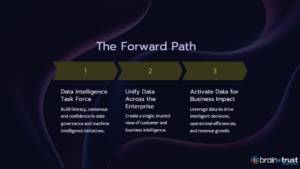We initially meant to write about a study just released by the Pew Research Center that reported that a quarter of Americans are online almost constantly, coupled with an experiment by ABC News that showed what happens when kids have no screen time limits for 48 hours. Taken together, both pieces indicate the potential damage that technology can do to us, without proper oversight.
And while that point still remains, there’s another story that has dominated the news cycle for the past week that also addresses the intended and unintended consequence of unmonitored technology: the Cambridge Analytica / Facebook story. In case you’ve been disconnected, here’s everything you need to know about the issue. Let’s be clear about one thing: this was not a data breach; this was an exploitation of what Facebook had made available; it’s something that marketers were aware of and using themselves and it’s far from being unique to Facebook: it’s Amazon, it’s Angry Birds, it’s eBay –it’s every service you use that’s free.
Companies are guilty of giving away their own data or access to data about their customers as well. Any company that has made its products available on Amazon loses the opportunity to have a 1:1 relationship with them. By pouring money into Facebook advertising rather than your own email marketing database, they miss the obvious opportunity to speak directly with their customers. They let the middleman own the process and the data (because it’s easier) rather than take on the responsibility themselves. This is exactly why we counsel our clients to #OwnYourData.
We’re either woefully ignorant about the terms of service or end user license agreements (EULAs) that we “agree” to, with as much thought as a swipe right or left, or we’re willingly giving up our rights in exchange for the free use of a platform. As Shelly Palmer wrote, “we [as a society] need to raise our level of data maturity.” When the regulatory process begins – and it will begin soon – we need to do it from an informed perspective.
We’ve got more to say on Facebook’s response and what it says about their leadership later this week. Please subscribe to the Brain+Trust Partners blog to be updated when it’s published.








It’s interesting to see you say “By pour money into Facebook rather than your own email marketing database” that brands miss an opportunity to connect directly to their customer. Whether you’re using Facebook or email, you are, in fact, NOT speaking to them directly, but through a 3rd party technology network. Whether you’re using a small or large email service provider, it’s still a tech platform that requires a budget and resources to manage, like Facebook. The difference between the two is that your reach with email is limited to your database and recipients of email rarely share the emails they receive with others. The platform itself provides no opportunities to grow your database either. You can do one thing: send an email, hope that it is opened, and pray that it is clicked on or read. With Facebook your content can be shared, you can receive instant feedback through likes, emoticons and comments. it is just as easy to A/B test content to try to find your audience’s sweet spot, and the analytics are much more robust. And Facebook allows you to reach audiences not already in your database, based on a variety of targeting parameters included in demographics and psychographics. Facebook provides the opportunity for organic content as well as paid content, which, btw, has a significantly higher click through rate than other digital platforms, second only to email. Facebook also allows you to learn about your audience; their interests, their behaviors, etc. In fact, you can use your email database to touch your customers on Facebook as well.
Now, I’m not advocating for abandoning email, but I would suggest that jumping on the Facebook-hate bandwagon, that brands and their marketing partners learn to leverage Facebook’s power better and consider both email and social media together when developing their strategy.
Hi Michael. It’s not a question of the spend; it’s a question of what you own at the end of the day. When I walk away from either platform would I rather have my own database of email addresses, or what Facebook lets brands leave with (i.e., NOTHING)?
Emails generally aren’t forwarded because we haven’t asked customers to do that. But if we did, you can bet that there would be growth. If very few people see a Sponsored Post or Ad on Facebook, they’re not going to take action either.
The bottom line is this: who owns the data? Because data is (or should be) at the center of every business.
Leave a comment